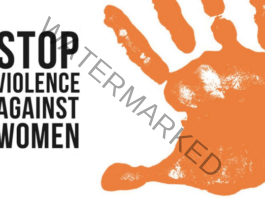Crime and Politics go hand-in-hand. At least this seems to come true in the ongoing 2024 Lok Sabha polls of world’s largest democracy.
In seven phases of the ongoing 2024 Lok Sabha polls, a significant 288 (53%) parliamentary constituencies of the total 543 have been marked as ‘Red Alert Constituency’.
In 2019 Lok Sabha elections, 265 (49%) constituencies had 3 or more candidates with declared criminal cases while in 2014 Lok Sabha polls, 245 (45%) constituencies in the Lok Sabha elections had 3 or more candidates with declared criminal cases. Records revealed, in 2009 General Elections, 196 (36%) constituencies had 3 or more candidates with declared criminal cases.
What is a ‘Red Alert’ Constituency?
Red alert constituencies are those constituencies where three or more contesting candidates have declared criminal cases against themselves.
| Year | Red Alert Constituency |
| 2009 | 196 (36%) |
| 2014 | 245 (45%) |
| 2019 | 265 (49%) |
| 2024 | 288 (53%) |
288 out of 543 constituencies carry ‘Red Alert’ tag
As per reports of Association of Democratic Reforms and National Election Watch, significant over 53% parliamentary constituencies, polling for which was scheduled to be held in seven phases between April 19 and June 01, 2024 in the ongoing Lok Sabha elections have been marked as ‘Red Alert’.
In Phase I of the Lok Sabha polls, voting was which held in 102 parliamentary constituencies in 21 states of the country on April 19, 2024, a significant 42 (41%) out of 102 constituencies have been marked as red alert constituencies, with each having three or more contesting candidates had declared criminal cases against themselves.
Further in second phase of the ongoing polls, polling for which was held on April 26, 2024 in 89 parliamentary constituencies of 18 states, a significant 45 (52%) constituencies had been marked as ‘red alert constituencies’ while in the third phase, polling for which was held on May 7, 2024 in 94 parliamentary constituencies of 12 states of the country, a significant 43 (45%) are red alert constituencies.
Similarly, in the fourth phase of ongoing Lok Sabha polls, polling for which is scheduled to be held on May 13, 2024 in 96 constituencies of 10 states, a significant 58 (60%) constituencies are red alert constituencies.
In fifth Phase, polling for which would be held on May 20, 2024 in 49 constituencies of 8 states, 26 (53%) are red alert constituencies while in sixth phase, polling for which would be held on May 25, 2024, 35 (61%) out of 57 constituencies in seven states are red alert constituencies in the Lok Sabha elections 2024.
Also in Phase VII, 39 (68%) out of 57 constituencies are red alert constituencies. Polling for Phase VII would be held on June 01, 2024 in 57 constituencies of 8 states.
| Phase | Polling Date | States | Constituency | Red Alert | Percentage |
| First | April 19, 2024 | 21 | 102 | 42 | 41 |
| Second | April 26, 2024 | 18 | 89 | 45 | 52 |
| Third | May 7, 2024 | 12 | 94 | 43 | 45 |
| Fourth | May 13, 2024 | 10 | 96 | 58 | 60 |
| Fifth | May 20, 2024 | 8 | 49 | 26 | 53 |
| Sixth | May 25, 2024 | 7 | 57 | 35 | 61 |
| Seventh | June 01, 2024 | 8 | 57 | 39 | 68 |
According to Right To Information (RTI) activist and Advocate, Allahabad High Court Pradeep Verma, political parties prefer criminals because they come up with a lot of money and clout which helps win elections in present times. “Certainly not healthy by any means for democracy, every election in the country has a major chunk of candidates having criminal background. This trend lures youths towards politics as they see it as a short cut to fame and money,” he added.
The Supreme Court in its orders dated February 13, 2020 had specifically instructed political parties to give reasons for such selection and why other individuals without criminal antecedents could not be selected as candidates. As per these mandatory guidelines, reasons for such selection has to be with reference to qualifications, achievements and merit of the candidate concerned.
It has been observed that political parties submit baseless reasons like popularity of a person, history of involvement in social work, criminal cases being politically motivated etc which do not appear to be proper reasons for fielding candidates with criminal past.




